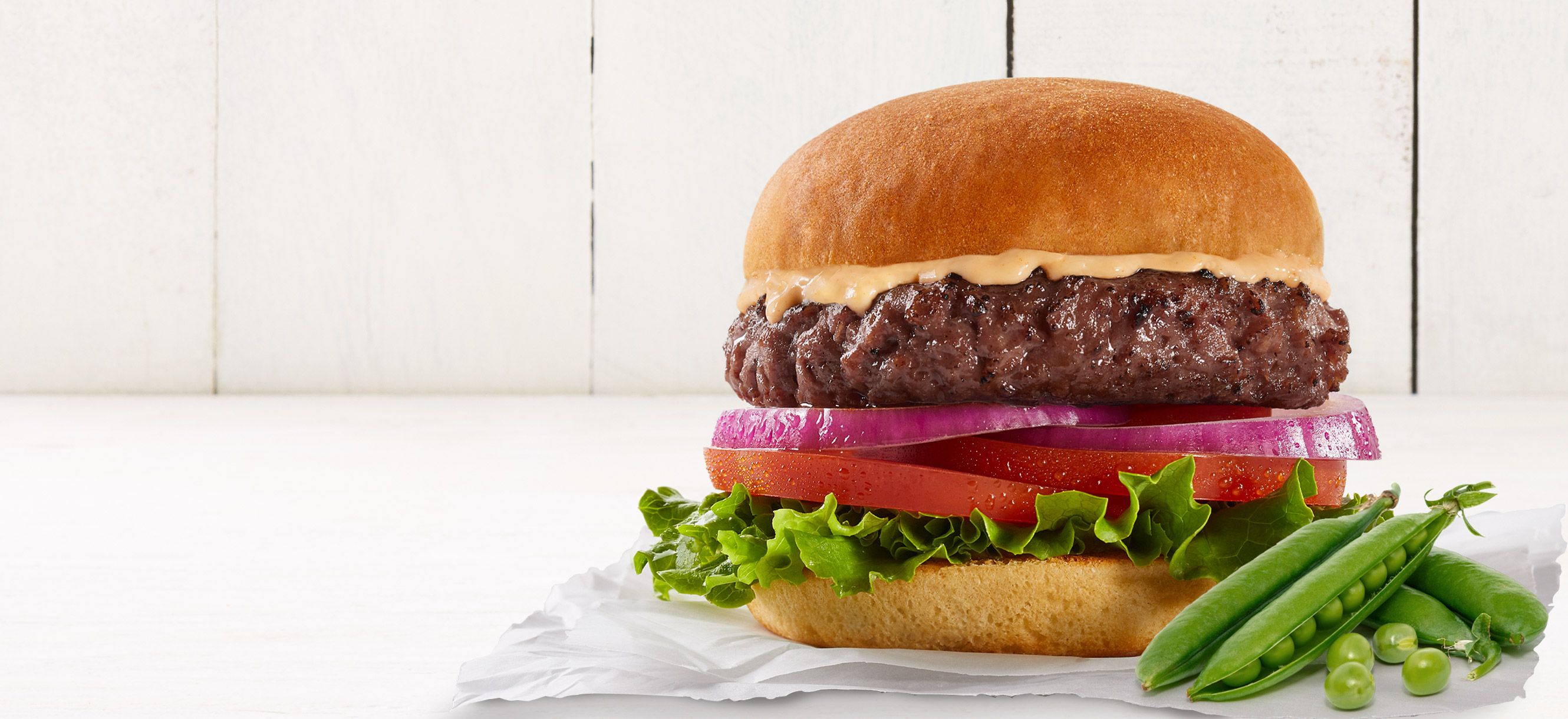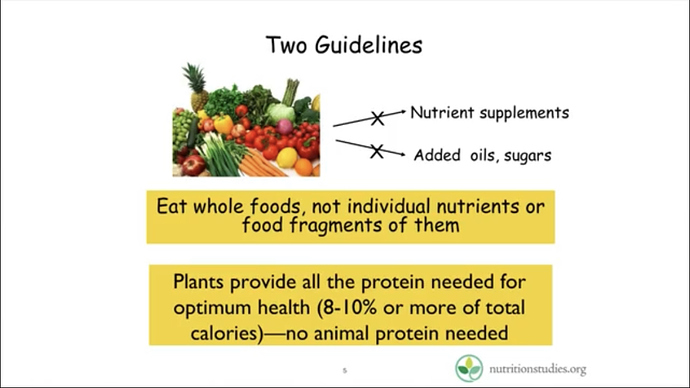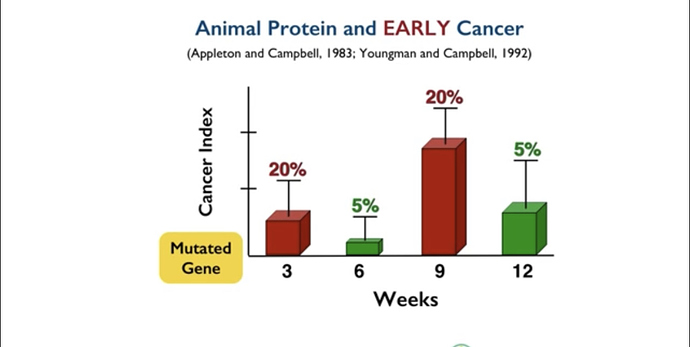The fact that cave art depicts ruminants and humans with spears is pretty telling in my opinion. And mammoths were not low in fat. There is a lot of evidence out there that humans ate meat and preferred fat. Just keep looking!
What do we really know about ancestral diet?
No argument here. I think our ancestors stuck a spear into every damn thing that would hold still long enough. There’s a reason we involuntarily drool when we smell a steak cooking… 
Two friends of mine are vegetarians and hate the smell of meat. I invite them over and have to light a candle in the house because it always smells like bacon. I’ve asked them both if they would try the impossible burger, and both told me they don’t like the taste of meat, and even if they did, they wouldn’t trust food service workers to give them the correct patty.
So, faux meat is more for meat eaters than vegetarians or vegans (nice try vegans, but I’m not eating those weird processed bleeding plants).
Vegan activism vs the meat industry : saving the world with the Impossible Burger?
Yes, I suspect the fake meat is aimed primarily at those of us who eat the real stuff. To save the planet, doncha know! As if millions of acres monocultured soy is saving the planet. Vegan propaganda. 
Vegan activism vs the meat industry : saving the world with the Impossible Burger?
Has anyone heard of Dr. Phil Goscienski, or looked into his research? His credentials were never confirmed on the podcast, and I’m not sure if his source material. The concept of the interview interested me, but the content just irked me.
not much at all.
too much has changed now. We can’t compare our frankenfood farmed foods with natural life foods from long long ago.
We can’t compare our daily lives in any way.
Climate changes and more.
We can’t compare medical treatments and all now from having nada back then.
Nothing is the same and what is to truly compare? Not a darn thing in reality of it all.
boy we can make a ton of guesses off a little bit of science discovery of what the past might have been, but it is a monster stretch for any true comparison to modern life now.
very cool thread, enjoying reading it!!
I tried the Impossible Whopper. It did taste just like the regular one. It caused some bloating. I’ll stick to the regular ones for.an occasional treat.
ewww bloating. from a burger…me knows that is not meat then. icky, cool ya took the hit to tell us 
Agreed, but I think we can extrapolate the reasons certain blue zone diets with the evolution of the human diet. For example:
Intermittent fasting works because our ancestors did not always have access to food. Their bodies were forced to burn fat (not muscle) in order to search out their next meal, defend themselves, and do whatever they could to survive. Burning muscle is counterintuitive to the body until it becomes absolutely necessary for the body to continue functioning.
Also
Our ancestors had seasonal access to high amounts of vegetation, so carb consumption would be cyclical, gaining and losing weight seasonally (perhaps like bears) for long term survival during harsh conditions. Our bodies still understand this cycle of carb intake, but the SAD is completely out of sync with it. This is why carb ups can be beneficial to our diets, but why constant high carb intake is a detriment.
Guys, let me know if this sounds right to you, I’m still pretty new to the scene. If you’ve got any more similar comparisons, I’d love to hear them.
I’m not a Bible thumper, but I have a new take on the story of Cain and Abel. God was pleased with carnivore Abel’s sacrifice of lamb and not nearly so pleased with Vegetarian Cain’s vegetables. Then, the cranky and jealous Cain, probably cranky because he was nutrient deficient from being a vegetarian murdered his brother.
See vegetarians and meat eaters have been fighting with each other since Biblical times.
But more seriously, it makes sense to me that we supplemented our meat eating with whatever we gathered, but I just can’t believe that we could really find enough plants to make them a large part of our calorie intake. I do think maybe we could have been similar to bears: putting on a layer of fat in the summer and early autumn, maybe eating lots of nuts, and then in ketosis, burning that fat in the winter.
Also, I was listening to Sally Norton discuss oxalate, and she mentioned how we no longer have seasonality of food. It may have been important for us to have extended breaks from plant eating to clear their toxins out of our bodies during the winter before the next round of plant eating began in the summer.
oh yea agreed on that because certain body functions are just that in every human. and seasonal vegetation was happening back then as it does now still in nature.
but you also can’t truly compare them at all with our modern day life.
Even physical body functions back then would be different (if we could get a live caveman into our modern day tests :)) cause they had no air pollution that we have, our environments with vaccines available and more I am sure change our bodies just enough to truly be a different ‘running’ body and would ‘test different’ in today’s tests. Did I make sense on writing that out as I am thinking it LOL
yea IF times would have happened to all animals on the planet and veg in season still happens but from then to now, eh, still so different.
I am still holding with comparison of back then and now is kinda useless in the long run. Can we learn some stuff, sure, but in the end it is SO far back all we can do is guesstimate any of it.
Work backwards from the present. Mum and Dad were ancestors. Grandparents were ancestors. They ate the world before we did.
Our human brains are amazing that we can transport ourselves back in time in a story.line.
But imagining back and then trying to build facts from that point where the data is incomplete creates wonderful potential for wild and varied stories and interpretations. We see those. It’s like creative paleo accounting. The contemporary data is much more available and abundant.
So, we recognise the state of nutritional ketosis. It has benefits. We recognise the innate human quest to extract as much energy out of the world around us and to make it edible. Because the consequences of not being able to do so left many of our ancestral relatives, who could not find energy, as evolutionary dead ends (and/or food for other beings).
We can observe that nutritional ketosis can be achieved in a healthy metabolism with out concious application of thought or action, in that a healthy person will be in ketosis by sleeping overnight. We can manipulate nutritional ketosis by: eating at specific times, eating specific foods and by physical activity, or a combination of all these.
So to answer why keto, metabolic ketosis, works, I’d suggest it is a nascent state of of a healthy human being. If a person moves toward a healthier self then the ketosis is naturally there.
I reckon we, as a species, just got too smart at extracting energy from our planet and environment, passed a healthy biological set point and confounded it into an almost obscurity with religion, wars**, politics, economics, legalised addiction and disinterest.
** wars get a special mention as they create times of scarcity and ingenuity (including enforced starvation). In a twisted way, that kept some of the observations alive about the human metabolism, nutrition, and food variety.
Probably only after depleting liver glycogen and muscle glycogen with some physical activity. The muscle glycogen is harder to shift as it seems exclusive for muscle activity, whereas the liver glycogen is for blood glucose homeostasis. The glycogen storage requires depletion before carbohydrate repletion. And the nutritional technicians will get in here and point out that protein and gluconeogenesis are another way to create adequate blood glucose for energy and muscle glycogen repletion.
The modern situation is that many in the population with persistently high blood glucose do not deplete the glycogen stores, so the blood glucose is stored as body fat.
So that “carb up” comment needs some context. In a forum where many people are metabolically dysfunctional with persistently high serum blood glucose, the context of a “carb up” is that it would make the problems worse.
I guess when I said ‘can be beneficial’, I was insinuating an n=1 type situation, but I suppose I could’ve been more clear.
But who doesn’t like some extrapolation? I think anthropology is an excellent way to understand the evolution of the human diet, even if it can devolve into a bit of storytelling. Human beings love telling stories, matter of fact, it’s a wonderful form of communication, and might be more palatable to some (for example, those unfamiliar with keto and the science behind it) than throwing science at them that they don’t want to hear.
I realize this will draw parallels with paleo, but my insinuation is not that we eat like cavemen (impossible), but that we seek to understand how the evolution of human eating has contemporary ramifications. That was my intention, at least.
Communication is an art. Great storytellers will be remembered as will their stories. Walt Disney understood this. Humans are fascinated by stories and novelty. I have to agree most thoroughly.
Poor pure scientists (mathematicians, physicists and chemists), if they have no flair, their scientific discoveries and data are ripped from them by journalists and science fiction authors.
A worthy intention and much discussed and referred to in expert commentary.
Just the resources provided by @amwassil, up the stream a bit, provides lots of discussion points.
Some times I get the impression that the thinking around the forum is centered around eating only meat and fat and that you cannot be in nutritional ketosis without meat and fat or animal based fats and proteins.
That kind of thinking is very deeply misleading.
Keep in mind rabbit starvation comes from eating only rabbits not carbohydrates or nutrient dense calories.
What kind of carbohydrates are being discussed?
You never see “processed carbs” it then becomes “carbs” and “all carbs are bad” …that is insane?
Any one who states: ”human do not need carbohydrates“ needs a serious mental health evaluation? Along with that I will also state: you don’t need animal proteins or fats to survive either?
Been looking at research by (Campbell et al.) and looking at the graph/chart that demonstrates the precise mechanism on how animal proteins can cause cancer, below it shows how reducing animal based protein reduces the cancer. And how percentages of animal protein turn the cancer on and off from multiplying or proliferating.
Then one can say “oh that’s because your eating carbs with it?” Then again what kind of carbs are we talking about? Highly refined and processed carbohydrates or Whole Foods?
I like to state comprehensive, unbiased and objective overviews even if it does not jive with my own nutritional framework, experimentation, or practices and give others options if they don’t like eating animal fats and proteins and want to do a ketogenic diet.
No Clear Requirement for Dietary Carbohydrates for Human Adults




